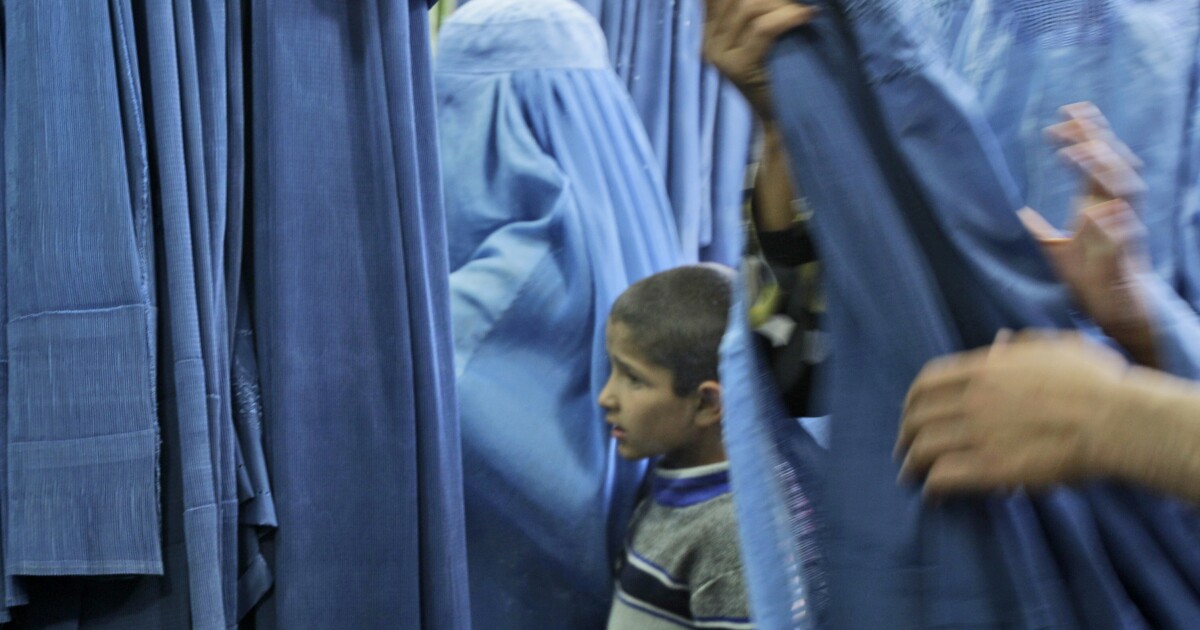

All women in Afghanistan must be covered head to toe in public, the country’s Taliban regime decreed Saturday in a move reminiscent of the group’s hard-line rule of the 1990s.
A woman’s father or closest male relative would be visited by authorities and could be imprisoned or fired from government positions if she refused to comply with the order, which also states it is best for women to stay in the home if they don’t have important work outside.
“For all dignified Afghan women wearing Hijab is necessary and the best Hijab is chadori (the head-to-toe burqa) which is part of our tradition and is respectful,” said Shir Mohammad, an official from the Ministry for the Propagation of Virtue and the Prevention of Vice, per the Associated Press. “Those women who are not too old or young must cover their face, except the eyes.”
KABUL MOSQUE BLAST KILLED MORE THAN 50 NEAR END OF RAMADAN, LEADER SAYS
The all-male vice and virtue ministry replaced Afghanistan’s women’s ministry last year after the Taliban regained control of the nation’s capital in Kabul as U.S. troops withdrew from the war-torn country.
“We want our sisters to live with dignity and safety,” said Khalid Hanafi, the acting minister for the Taliban’s vice and virtue ministry, according to the outlet.
Shortly after its establishment, the vice and virtue ministry imposed new rules, restricting women’s rights to travel more than 45 miles without male companions. This rule was stepped up to include traveling abroad, and other similar rules were imposed, including prohibiting women from access to healthcare without a male chaperon in several healthcare centers, according to the outlet.
The Taliban have opted not to reopen schools to girls above grade six, breaching prior pledges and drawing international uproar.
CLICK HERE TO READ MORE FROM THE WASHINGTON EXAMINER
Since toppling the U.S.-backed government and returning to power, the Taliban have been dogged by internal power struggles and massive humanitarian problems.
More than 60% of Afghanistan’s population, or 24 million people, are in desperate need of humanitarian assistance such as food and medical supplies, the U.N. Office for the Coordination of Humanitarian Affairs said.







